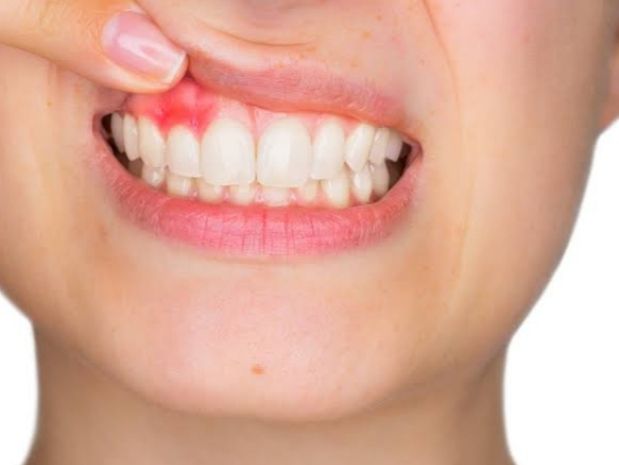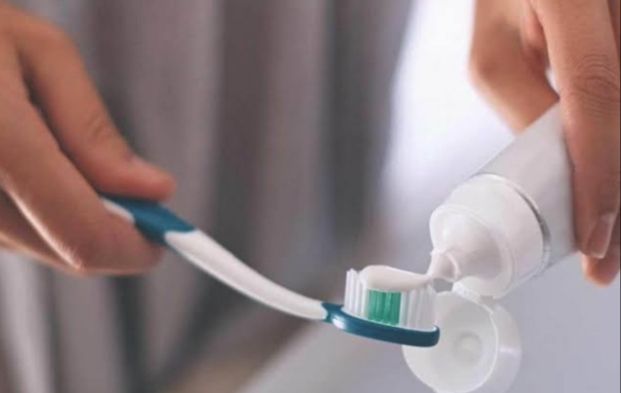Using Home remedies for gingivitis during pregnancy is a very important way to avoid gingivitis.
Gingivitis is a common form of gum disease that occurs when bacteria and plaque build up in the mouth and lead to infection.
Here’s more about gingivitis during pregnancy due to hormonal changes.
lt makes the gums red, swollen, and tender, there are many home remedies for gingivitis during pregnancy.
It's easy to get rid of it by following a few steps. If left untreated, it can become a more serious infection known as periodontitis.
Gingivitis and periodontitis are major causes of tooth loss in adults, according to the American Dental Association.

What is the Definition of gingivitis
Gums attach to teeth at a lower point than the gum edges. That forms a small space called a sulcus.
Food and plaque can get trapped in this space and cause a gum infection or gingivitis.
Gingivitis is a very common and mild form of gum disease (periodontal disease) that causes irritation, redness, and swelling (inflammation) of your gingiva, the part of your gum around the base of your teeth.
Pregnant women are most exposed to it, so there are many home remedies for gingivitis during pregnancy.
What are the Causes of gingivitis
Plaque is a thin film of bacteria. It forms on the surface of the teeth. As plaque advances, it hardens and becomes tartar.
You can treat a gum infection when plaque extends below the gum line.
If left unchecked, gingivitis can make the gums separate from the teeth.
The most common cause of gingivitis is poor oral hygiene which encourages plaque to form on teeth, causing inflammation of surrounding gum tissues.
Plaque forms on your teeth. Plaque is an invisible, sticky film composed mainly of bacteria that forms on your teeth when starches and sugars in food interact with bacteria normally found in your mouth.
Plaque requires daily removal and cleaning because it re-forms quickly.
Plaque turns into tartar. Plaque that stays on the teeth can harden under the gumline into tartar (calculus), which collects bacteria.
Tartar makes plaque more difficult to remove, creates a protective shield for bacteria, and causes irritation along the gumline.
You need professional dental cleaning techniques to remove tartar.
Gingiva becomes inflamed (gingivitis). The longer that plaque and tartar remain on the teeth, the more they irritate the gingiva, the part of the gum around the base of the teeth causing inflammation.
Tooth decay (dental caries) also may result. If not treated, gingivitis can advance to periodontitis and eventual tooth loss.
Hormonal disturbance in pregnancy is an important cause, so women should follow some home remedies for gingivitis during pregnancy.
What are the Symptoms of gingivitis
- Dusky red or dark red gums.
- Gums that are red, tender, or swollen.
- Gums that bleed when you brush or floss your teeth.
- Gums that have pulled away from your teeth.
- Loose teeth.
- A change in how your teeth fit together when you bite (malocclusion).
- Pus between your teeth and gums.
- Pain when chewing.
- Sensitive teeth.
- Partial dentures that no longer fit.
- Foul-smelling breath that doesn’t go away after you brush your teeth.
- That more appears in pregnancy, so women should follow home remedies for gingivitis during pregnancy.
When to see a dentist
If the woman is pregnant, she should follow many home remedies for gingivitis during pregnancy before visiting the dentist.
If you notice any pain or symptoms of gingivitis, schedule an appointment with the dentist.
The sooner you take care, the better your chances of reversing damage from gingivitis and preventing its progression to periodontitis.

How is gingivitis diagnosed
During the dental exam, your gums will be probed with a small ruler.
This probing is the way to check for inflammation. It measures any pockets around your teeth.
The typical depth is 1 to 3 millimeters.
The dentist may also order X-rays to check for bone loss.
This can help diagnose gingivitis. If gingivitis is present, you may be referred to a periodontist.
A periodontist is a dentist that specializes in the treatment of gum diseases.
What are the Types of gingivitis
- Plaque-Induced Gingivitis
- Nutritional Gingivitis
- Hormonal Gingivitis
"you can avoid it by following home remedies for gingivitis during pregnancy".
- Drug-Induced Gingivitis
What are the risk factors of gingivitis
- Poor oral care habits
- Smoking or chewing tobacco
- Older age
- Dry mouth
- Poor nutrition, including vitamin C deficiency
- Dental restorations that don't fit properly or crooked teeth which are difficult to clean.
- Conditions that decrease immunity such as leukemia, HIV/AIDS, or cancer treatment
- Certain drugs, like phenytoin (Dilantin, Phenytek) for epileptic seizures, and some calcium channel blockers, are used for angina, high blood pressure, and other conditions.
- Hormonal changes, like those related to pregnancy, menstrual cycle, or use of birth control pills.
- Genetics.
- Medical conditions like certain viral and fungal infections.
Pregnancy plays a big role, so women should take care of their tooth health and follow many home remedies for gingivitis during pregnancy.
Prevention and control of gingivitis
If you are a woman, you should do some home remedies for gingivitis during pregnancy.
1) Brush your teeth continually at least twice a day.
2) Opt for an electric toothbrush to maximize your cleaning potential.
3) Make sure the toothbrush has soft or extra-soft bristles.
4) Replace your toothbrush every three months.
5) Floss daily.
6) Use a natural mouthwash.
7) Visit your dentist at least once a year.
Treatment of gingivitis
If you are pregnant, that will be easy to treat it by following home remedies for gingivitis during pregnancy.
Gingivitis is treated by removing any plaque from the teeth.
You can normally prevent gingivitis because it does not cause damage to the teeth or bones.
Calculus (hard plaque) will need to be removed professionally by the dentist.
Techniques of Cleaning teeth
Several techniques can be used to deep clean the teeth without surgery.
They all remove plaque and tartar to prevent gum irritation:

Scaling
Teeth scaling removes tartar from above and below the gum line.
Root planing
This smooths rough spots and removes plaque and tartar from the root surface.
Lasers
This treatment may remove tartar with less pain and bleeding than scaling and root planing.
It is very useful in addition to home remedies for gingivitis during pregnancy.
Medications
Several medications can be used to treat gum disease:
Antiseptic mouthwash containing chlorhexidine can be used to disinfect the mouth.
Timed-release antiseptic chips which contain chlorhexidine can be inserted into pockets after root planing.
Antibiotic microspheres made with minocycline can be inserted into pockets after scaling and planing.
Oral antibiotics can be used to treat persistent areas of gum inflammation.
Doxycycline, an antibiotic, can prevent enzymes from causing tooth damage.
Pregnancy gingivitis most commonly develops between months 2 and 8. It may reach a peak during the third trimester.
Pregnant women also face an increased risk of both tooth decay and loose teeth.
You may not be able to control your hormones, but there are many things you can do to protect your teeth and gums before and during your pregnancy by following home remedies for gingivitis during pregnancy.
Home remedies for gingivitis during pregnancy
1) Use Antibacterial Toothpaste. It can help fight plaque all day and night, long after you've completed your oral hygiene routine.
2) Brush your teeth more effectively. Make sure you brush your teeth for 2 minutes, 2 times every day.
3) Use an Antibacterial Mouthwash.
4) Floss daily.
5) Gargle daily with a warm saltwater rinse (one teaspoon of salt in one cup of warm water).
Gingivitis is a common mouth disease that occurs in poor hygiene of the mouth. It makes the gum red, swollen, and tender.
Smoking and poor oral care are the risk factors for all types of it. It's easy to treat it through many steps of oral hygiene.
Finally, anyone can protect himself from gingivitis with some home remedies such as Use Antibacterial Toothpaste; not only for any person but also for pregnant women.
Pregnancy is a big blessing from God, so follow the home remedies for gingivitis during pregnancy.


You must be logged in to post a comment.